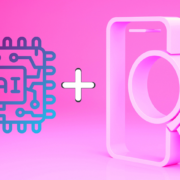If you’ve been injured and you’re considering setting up a trust to pay for medical expenses, here’s a guide to personal injury trusts. Understanding the costs and benefits of setting up a personal injury trust is essential. We’ll discuss the tax implications and get started. This guide will also address the benefits and drawbacks of personal injury trusts.
Table of Contents
Tax consequences
If you’ve been a victim of an accident or injury, you probably worry about the tax implications of receiving a settlement. After all, you can’t afford to pay exorbitant tax penalties, and the tax consequences of a personal injury settlement aren’t always obvious. However, you should know a few things about the tax consequences of a personal injury trust.
The most apparent tax consequence of a personal injury trust is that the money you receive is no longer your own. Although you are legally entitled to the money, it’s worth keeping in mind that it is not considered your assets. Therefore, you can’t use it to make investments or invest yourself. This can affect your ability to receive public assistance, such as welfare payments. Fortunately, there are options to protect your award money, including a Personal Injury Trust.
Benefits
If you have suffered a severe injury, you can place the money you receive in a Personal Injury Trust. These trusts are governed by federal law, and assets held in them do not count against your resources when you apply for SSI or Medicaid. As a result, a personal injury trust can provide much-needed financial security if you are eligible for such benefits. In addition, a personal injury trust can help you keep your benefits and qualify for other government benefits, such as carers or mobility allowance.
Personal injury trusts are different from other types of trust funds. A settlor and a beneficiary create them, and these people benefit from the funds. In some cases, Personal Injury Victim(s) can be more than one. However, in general, only one person is the beneficiary of a personal injury trust. Therefore, when establishing a PI trust, you can choose whom to put the funds in.
Costs
Thousands of people every year make personal injury claims. If you are on government benefits, personal injury compensation can help with future care costs and benefits claims. Unlike other payment types, however, personal injury compensation can affect benefits you may have claimed before your injury. Using proper procedures and following specific rules can help you safeguard the amount of your award. In addition, if you don’t have sufficient funds to meet your medical needs, personal injury trusts can help.
A personal injury trust protects your compensation from means-testing. While your child may not receive benefits now, they may later qualify for them. In the meantime, your payment will be ring-fenced in the trust and will remain there until they reach adulthood. The benefits of a personal injury trust are many, particularly suitable for vulnerable children. Personal injury trusts provide stability, flexibility, and guidance for those victims of an accident.
Setting up a trust
Set up a personal injury trust as soon as possible. You should do this quickly because you do not want your money to mix up with other funds. The trust should be governed by a board of trustees comprised of adults over 18, so it is safest to have at least two people involved. The board of trustees will have complete control over the money. If you suffer serious injuries or losses, having a lawyer set up a personal injury trust may be worth it.
If you are disabled, you can set up a personal injury trust to protect your income. If you received compensation from a third party, you might still be able to keep Medicaid and SSI benefits. However, your funds will be handled by a trustee, who will invest and pay taxes on any interest that accrues. You can set up a trust for the entire amount of your recovery.
Finding a victim assistance program
Many types of victim assistance programs are available for victims of personal injury. There are resources to help victims get emergency cash or a loan if they can’t afford their medical bills. Many programs help pay for food, clothes, locks, and other necessities. Some help victims get medical care, such as emergency transportation to and from the doctor. Victims of intentional violent crimes may qualify for emergency financial assistance for medical expenses, and many programs help victims obtain compensation.
Victim assistance programs can also help victims get access to compensation for the expenses incurred by their accident. For example, victims of violent crimes may qualify for financial compensation to help cover their medical costs, lost earnings, and funeral expenses. This assistance program requires an online application process and supporting documentation. It is important to note that eligibility is not guaranteed, and these funds will only cover expenses related to the crime that is not covered by other sources.






Comments